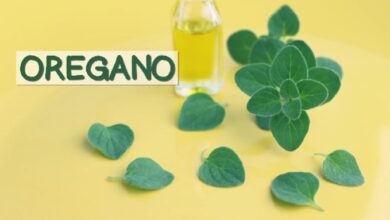Turkey Nutrition Facts
Turkey, a popular choice for many meals and festive occasions, offers a wealth of nutritional benefits. From its rich protein content to an array of essential vitamins and minerals, turkey is a powerhouse of nutrition. This detailed guide explores the nutritional profile of turkey, its health benefits, and answers to common questions about incorporating turkey into your diet.

Nutritional Profile of Turkey
Macronutrients
Turkey is known for its high protein content, making it an excellent choice for those looking to build muscle or maintain a healthy diet. Here are the key macronutrient values for different types of turkey meat per 100 grams:
- Light Meat (Breast)
- Calories: 135
- Protein: 30 grams
- Fat: 1 gram
- Carbohydrates: 0 grams
- Dark Meat (Thigh)
- Calories: 187
- Protein: 25 grams
- Fat: 8 grams
- Carbohydrates: 0 grams
Turkey breast is particularly low in fat and calories while being exceptionally high in protein, making it a staple for those following a lean diet.
Vitamins and Minerals
Turkey is a rich source of several essential vitamins and minerals:
- Selenium: Turkey is an excellent source of selenium, a mineral that supports immune function, thyroid health, and DNA production. An 8-ounce serving of turkey provides more than 100% of the recommended daily allowance (RDA) for selenium.
- Niacin (Vitamin B3): Important for energy production and DNA repair, turkey provides over half of the daily requirement for niacin.
- Phosphorus: Vital for bone health and energy production, a serving of turkey offers about 48% of the daily phosphorus needs.
- Zinc: Essential for immune function and wound healing, turkey contributes significantly to daily zinc intake.
- Iron: While not as high as in red meat, turkey still provides a good amount of iron, crucial for oxygen transport in the blood.
Health Benefits of Turkey
High Protein Content
Turkey is among the top meats for protein density. Light turkey meat has a protein density of about 29.9%, higher than many other meats. Protein is essential for muscle repair, growth, and overall body maintenance.
Rich in Selenium
Selenium is crucial for protecting the body against oxidative damage and infection. Turkey’s high selenium content makes it beneficial for overall health and disease prevention.
Supports Weight Management
Due to its high protein and low fat content, especially in the breast, turkey is a great food for those looking to manage their weight. High-protein diets are associated with increased satiety, helping to reduce overall calorie intake.
Boosts Heart Health
Choosing lean turkey meat over processed or red meats can support heart health. It helps in reducing the risk of heart diseases by lowering cholesterol levels and providing a source of lean protein.
Essential Vitamins and Minerals
Turkey is a rich source of essential nutrients such as niacin, phosphorus, zinc, and iron, which play vital roles in various bodily functions, including energy production, immune support, and oxygen transport.

Frequently Asked Questions
What are the benefits of eating turkey over other meats?
Turkey is lower in fat and calories compared to red meats and even some poultry options. It offers a higher protein density and is rich in selenium, making it a healthier choice for many people.
Is turkey good for weight loss?
Yes, turkey, especially the breast, is low in calories and fat but high in protein, which can help with weight management by promoting satiety and preserving muscle mass during weight loss.
How does turkey compare to chicken nutritionally?
Both turkey and chicken are excellent sources of lean protein. However, turkey tends to be lower in fat and calories while providing a higher amount of certain minerals like selenium and zinc.
Can I eat turkey if I have dietary restrictions?
Turkey is generally safe for most dietary plans, including low-fat and high-protein diets. However, it is important to choose unprocessed, skinless turkey to avoid added fats and sodium.
How should I store and cook turkey to retain its nutritional value?
Store turkey in the refrigerator at 40°F or below and use it within 1-2 days for optimal freshness. Cooking methods like baking, grilling, or roasting are preferable to frying to retain its nutritional benefits and keep it low in fat.
In summary, turkey is a nutrient-dense meat that provides numerous health benefits. Its high protein content, essential vitamins, and minerals make it an excellent choice for a balanced diet. Whether you’re looking to build muscle, manage weight, or simply enjoy a delicious and nutritious meal, turkey is a versatile and beneficial option.
Read also:





